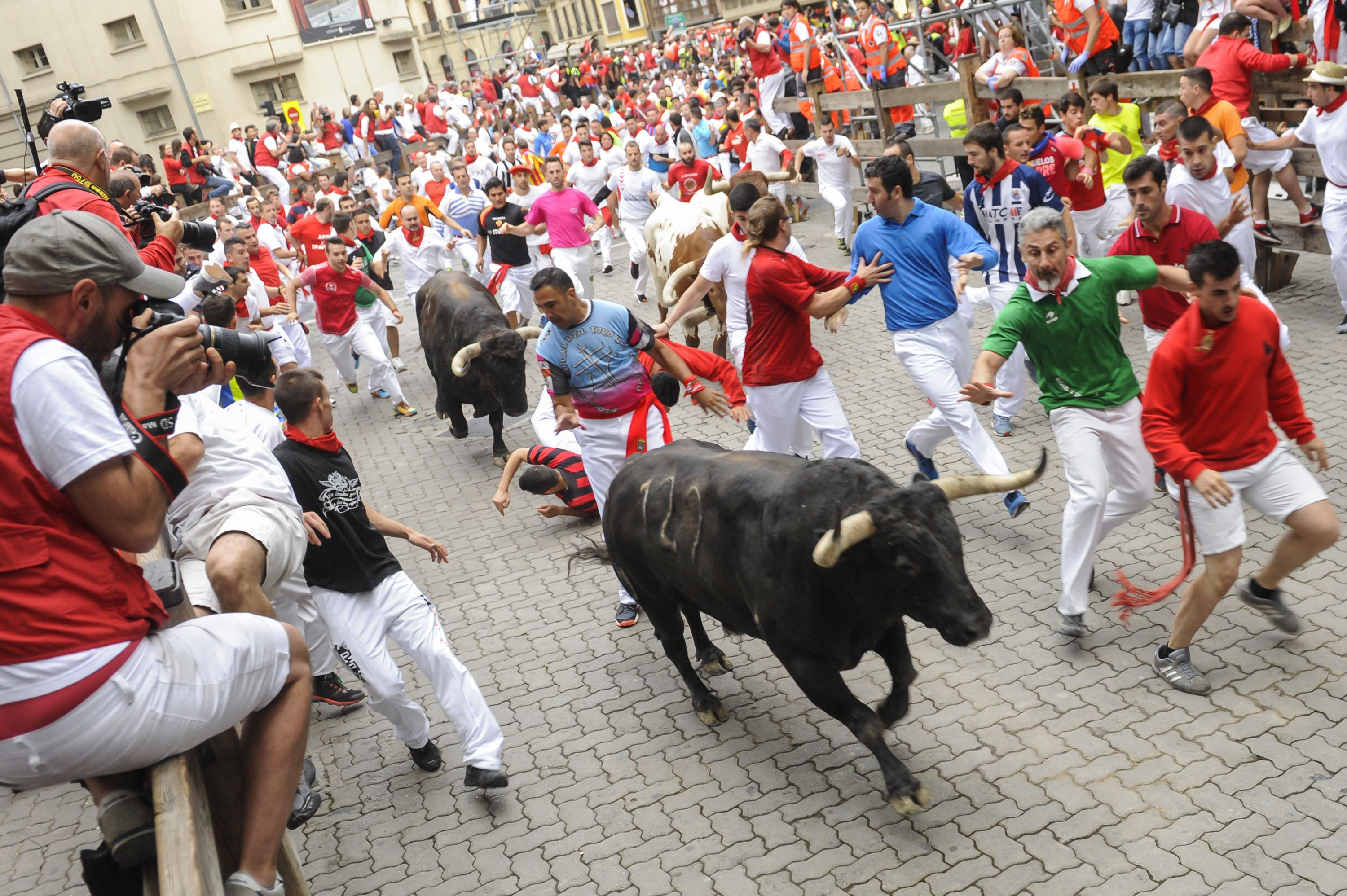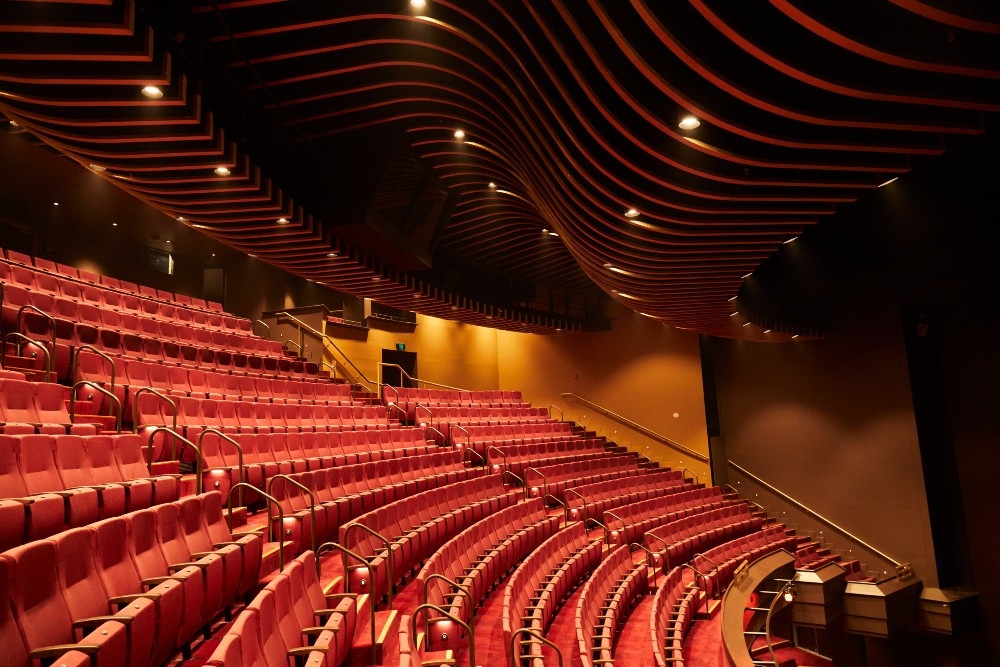Pamplona's Bull-Running Festival: A Tourist Magnet and Source of Local Frustration
Pamplona, a Spanish city famed for its annual bull-running festival, has become the latest in a string of cities across Spain to crack down on tourist accommodation. The city's decision to ban new licenses for tourist flats in its historic center stems from growing frustration among residents who feel the influx of tourists is pushing up housing costs and eroding the city's character.
The city's annual San Fermin festival, which attracts around a million visitors from around the world, has become a double-edged sword for Pamplona. While it brings in significant tourism revenue, it also creates a surge in demand for short-term rentals, driving up prices for local residents and making it harder for them to find affordable housing.
Locals Take Action: Glueing Up Key Boxes and Protesting
The frustration of Pamplona residents has reached a boiling point, leading to a series of protests against the perceived negative impacts of overtourism. In May, protestors vented their anger by damaging key boxes outside tourist flats with glue or silicone, a symbolic act of defiance that highlighted their desperation for change.
This incident was just one example of the growing public opposition to overtourism in Spain. Similar protests have erupted in other popular tourist destinations, such as Barcelona, Tenerife, Majorca, and the Balearic Islands. Residents in these areas have been vocal about their concerns over the influx of tourists, claiming it is eroding their quality of life and displacing local residents. The anger is palpable, leading some locals to believe that tourism is not only a source of income but a growing threat to their communities.
The City's Response: No More Tourist Flats in the Old Town
The left-wing coalition group that runs Pamplona's city council has finally responded to the growing pressure from residents, announcing a ban on new licenses for tourist flats in the old town. The council cited a number of factors behind the decision, including "rising house prices, both for sale and rent, the worsening difficulties of [the] commercial sector as well as the loss of identity of the historic centre." The ban, which will come into force later this year, aims to slow down the influx of tourist accommodation and preserve the city's historic center as a residential area for locals.
The council's statement further emphasized the impact of tourist flats on housing affordability, stating, "When the tourist apartments offered have very high prices compared to the supply of permanent housing, it generates tension mainly in the rental market and substantial increases in housing prices." This acknowledgement of the strain placed on the local housing market by the tourist accommodation industry signals a shift in perspective and a growing understanding of the issue at hand.
A Call for Sustainable Tourism and Preserving Local Character
Joxe Abauerra, a member of the Basque separatist EH Bildu party, which is part of the coalition city council, expressed his party's commitment to "sustainable tourism" and the preservation of Pamplona's city center. "We are taking this measure because we [don't want] to allow any more tourist flats in the city centre. This is an important measure," said Abauerra. "We support sustainable tourism, and we want to preserve the city centre as a residential area and for local commerce." This statement emphasizes the city's desire to balance the benefits of tourism with the needs of its local residents and ensure the preservation of the city's cultural identity.
A Trend Across Spain: Cities Seeking to Reassert Control
Pamplona's decision to ban new tourist flats is part of a growing trend across Spain, where cities are increasingly seeking to regain control over tourism and its impact on their communities. Cities like Seville, Granada, Valencia, and Malaga are all implementing stricter restrictions on short-term holiday rentals. Even the capital city of Madrid announced a temporary suspension of new holiday rental licenses, which is expected to last until 2025. The city of Barcelona has gone even further, with the mayor announcing plans to introduce a complete ban on all short-term rentals by 2028. This move, which would void approximately 10,000 existing licenses, is currently being contested in court by the conservative People's Party.
A Shift in Attitudes: From Tourist Mecca to Balancing Act
The growing opposition to overtourism in Spain reflects a broader shift in attitudes towards the industry. While tourism remains a significant source of revenue for many cities, there is a growing recognition that it needs to be managed in a more sustainable and equitable way. This means finding a balance between promoting tourism and protecting the interests of local residents. This shift is marked by a growing understanding of the negative social, economic, and environmental impacts of unchecked tourism, and a desire to create a more equitable and sustainable future for both tourists and local communities.
The Future of Tourism: A Conversation for All
The events in Pamplona highlight the growing tensions between tourism and local communities. The city's decision to ban new tourist flats in its historic center is a significant step towards addressing these concerns and finding a more sustainable model for tourism. As cities around the world grapple with the challenges of overtourism, it is crucial to engage in a broader conversation about the future of tourism. This conversation should involve all stakeholders, including tourists, local residents, businesses, and government officials, to ensure that tourism benefits all parties involved.
This conversation must move beyond simply addressing the symptoms of overtourism and tackle the root causes of the problem. This requires a holistic approach that considers the social, economic, and environmental impacts of tourism. By prioritizing sustainability, inclusivity, and community well-being, we can create a future where tourism truly benefits both visitors and local communities.
A Call to Action: Tourists and Locals United
As tourists, we have a responsibility to be mindful of the impact our travels have on the destinations we visit. This means choosing sustainable tourism options, respecting local cultures, and minimizing our environmental footprint. By supporting local businesses, engaging with local communities, and leaving a positive impact, we can contribute to a more responsible and equitable tourism industry. It is time for us to move beyond the "tourism kills the city" mentality and embrace a more sustainable and collaborative approach to travel.
Ultimately, the future of tourism lies in the hands of all of us, both tourists and locals alike. By working together, we can ensure that tourism is a force for good, contributing to the economic prosperity and social well-being of communities around the world.


















